Exploring Applications of Solar Energy in Indian Agriculture

Table of Contents
- What is Solar Energy and How it Works in Terms of Farming?
- Applications of Solar Energy in Agriculture
- Advantages of Solar Energy in Agriculture
- Limitations of Solar Energy in Agriculture
What is Solar Energy and How it Works in Terms of Farming?
Solar energy is an abundant renewable source of energy that comes from the sun. This energy can be utilized to generate electricity or heat for various purposes. There are two important types of solar energy technologies for utilizing the solar energy i.e., Solar Photovoltaic (SPV) and Concentrating Solar Thermal Power (CSP). The SPV is used to produce electricity directly whereas CSP is used to produce heat which is then stored for producing electricity. The CSP is mainly used in very large power plants and is not very popularly used in farming. Solar Photovoltaic, on the other hand, is suitable when it comes to farming.
In Solar Photovoltaics, solar panels are used to generate electricity that can then be used for lighting, pumping, refrigeration, etc. The sunlight is absorbed by the PV cells in the solar panel. This creates electrical charges and current required to produce electricity. This direct current of electricity is then stored in solar batteries through an inverter.
Now that we have an idea about the working and storage of solar energy. Let's learn about the applications of this solar energy in agriculture.
Applications of Solar Energy in Agriculture
Solar energy has an infinite potential as a resource. It is used in various farming applications. Let’s discuss about them below:
Solar Pumps
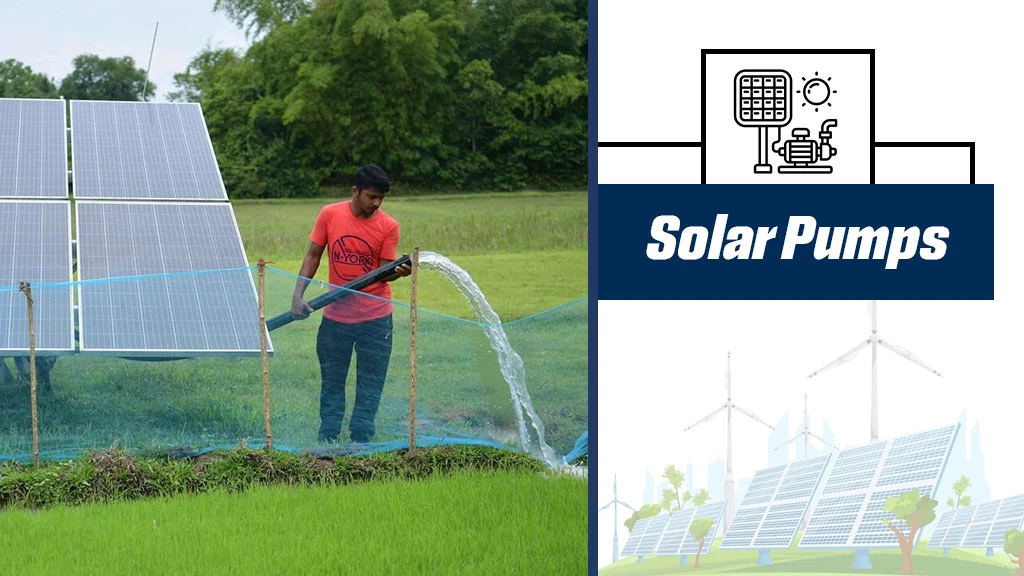
The most useful application of solar energy in the irrigation sector is water pumping and lifting. Using mainly the SPV system, solar pumps or the water pumps are operated by solar energy. With the help of a solar panel and inverter the solar energy is converted into DC and AC. Then with the help of a water pump motor the AC electricity is used to draw water from the sources like wells, tubewells, tanks, farm ponds, surface water from canals or rivers. This lifted water is then used for the irrigation of crops.
Solar Fencing
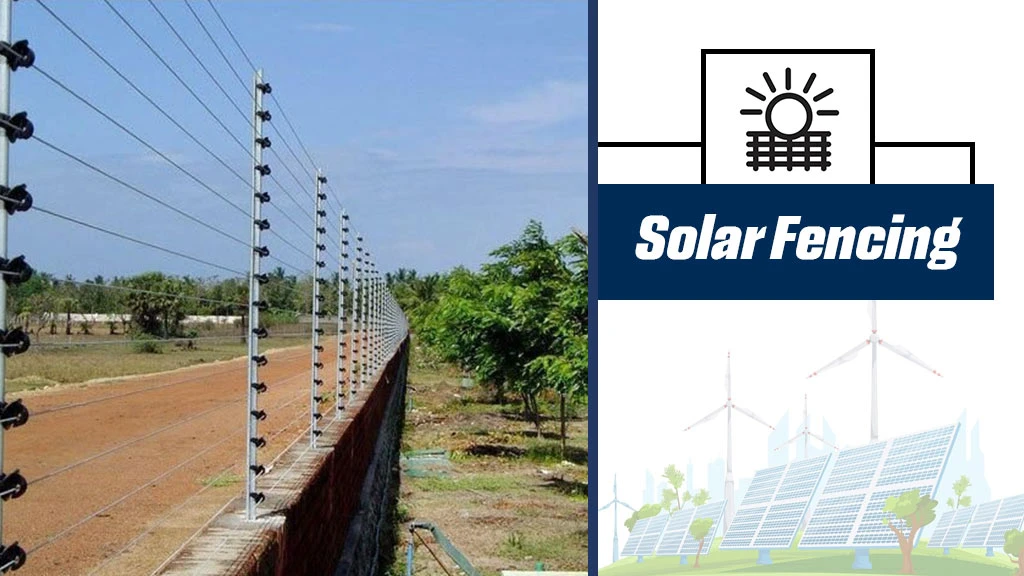
Another useful application of solar energy in agriculture is solar powered fencing which protects your crops from wild animals or intruders. With the help of the SPV system, the absorbed sunlight is converted into electricity first by the solar panel and then it is stored in the battery to charge the fence. The solar panel keeps the battery charged continuously and the battery keeps the fence operational 24x7. In between the battery and the fence, a device called solar fencing energizer is used. It converts the low voltage current to high voltage current to power the fence. The solar fencing produces a current when it comes in contact with anything which gives them a mild shock.
Solar Insect and Pest Trap
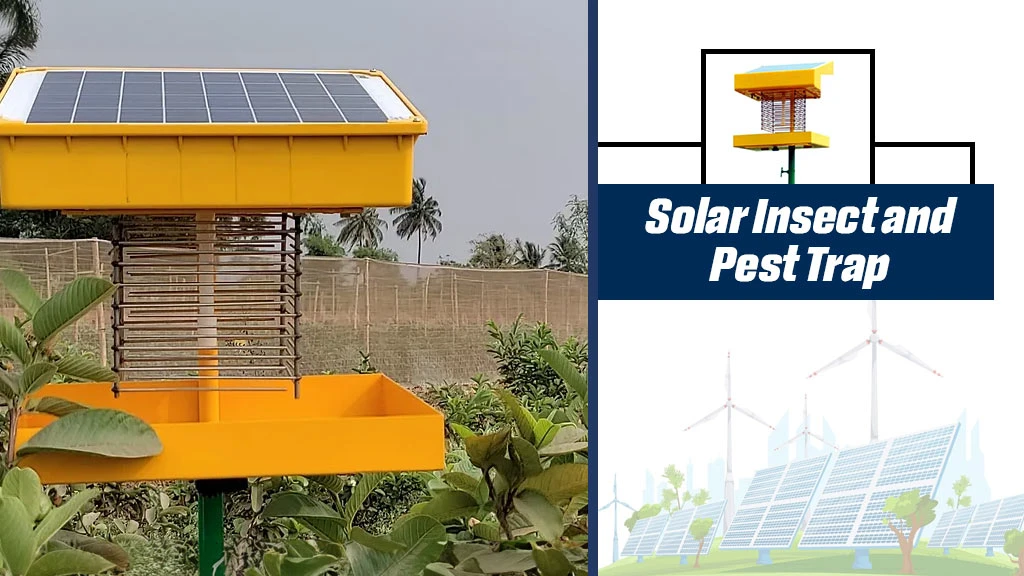
Solar insect and Pest trap is a device which uses solar energy to trap the harmful insects in the agricultural lands. It is charged during the day and it starts working automatically at night. Its SPV system includes a solar panel, battery, LED bulb, motor, pump, and pest basin. The battery stores the generated power from the panel and discharges it to the led bulb. The led bulb is used to attract the insects and pests which then get collected in the pest basin filled with water. The motor is used to tilt the basin for cleaning and the pump is used to refill the basin with water.
Solar Dryers
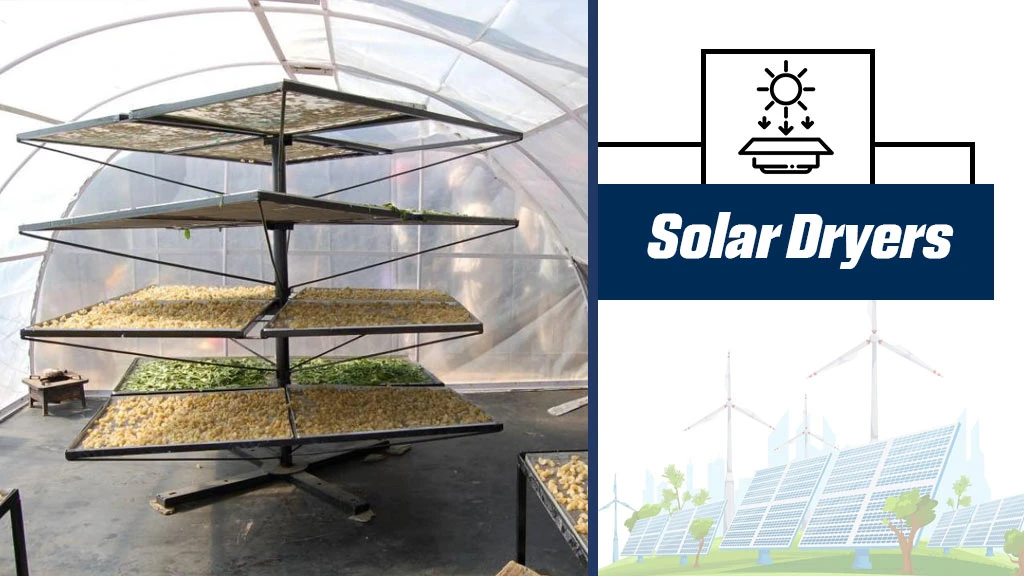
Solar Dryers are used for removing the moisture from different vegetables and fruits using primarily the photovoltaic or thermal panels, Solar collectors, Energy storage materials, Biomass, Thermal recovery unit, humidification-dehumidification desalination units, and sorbent materials. Solar dryers are classified into four types: indirect, direct, mixed, and hybrid solar dryers. However, the basic principle on which all the solar dryers are based is flat solar collector and greenhouse effect. Solar dryers are much convenient and better than open courtyard drying.
Solar Milking Machine
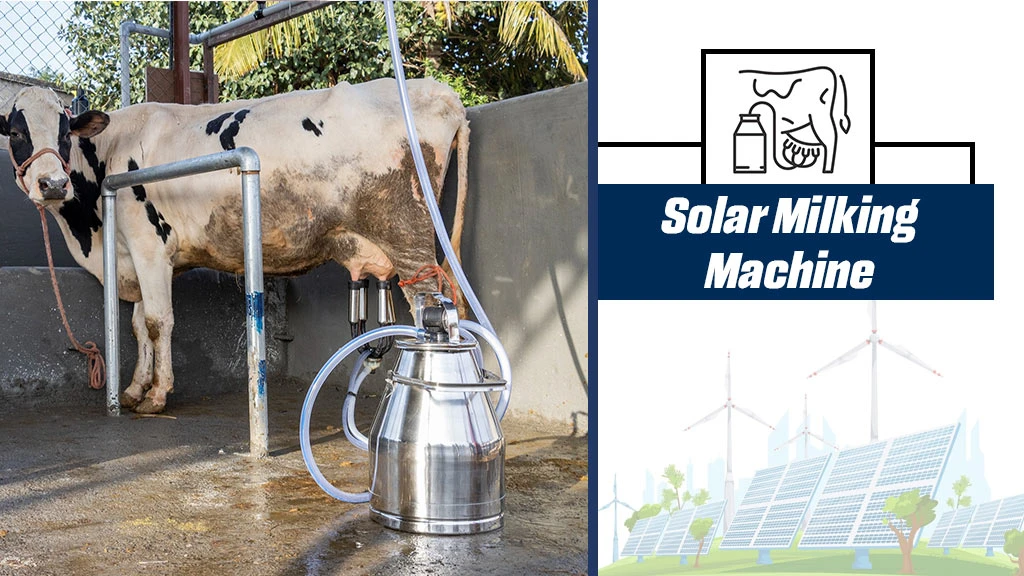
Solar milking machines are the machines used for milking the cows, buffaloes, and other milch animals. It is powered by the electricity generated from the solar panels as well as with the batteries in which the electricity is stored. They are efficient and economical when compared to the normal milking process.
Advantages of Solar Energy in Agriculture
On the basis of the applications of solar energy in the agriculture sector we can infer that it offers various benefits to the farmer:
- Environment Friendly: Solar energy is a non-polluted resource unlike other resources like fossil fuels. Therefore, machines or devices that are solar powered cause no pollution and are safe for the environment.
- Government Support: The use of solar energy in agriculture is highly promoted by the government of India. Therefore, the government has launched many schemes like the PM-KUSUM yojana to support the farmers by providing subsidies on the SPV systems.
- Reliable: In rural areas, where the conventional power systems have not been established properly, solar energy acts as a boon. This power option is more reliable, consistent and predictable.
- Free Energy: Solar energy is a free source of energy that is inexhaustible. It can also be transported to different components easily. Therefore, you can use it in abundance without worrying about the electricity bills.
- Water Conservation: Water as a resource for generating electricity is replaced by sunlight which reduces water consumption and wastage. Also, the SPV systems become more economical when merged with water conservation techniques. It does most optimum exploitation of groundwater.
- Low Maintenance: The SPV systems are quite low maintenance as they are one time investment which require no refueling and little servicing.
Limitations of Solar Energy in Agriculture
Although solar energy offers a lot of benefits, it also includes some drawbacks with itself:
- High Initial Costs: Although the government provides a lot of subsidies for the installation of the SPV systems, they are still quite costly for a marginal farmer to afford.
- Land Use: The solar panels or the SPV system installation requires a wide area of land.
- Weather Dependent: The solar powered applications are highly dependent on the sunlight and weather. On cloudy days in rainy season or in winter season the production of solar power can decline due to little or no sunlight.
However, these challenges are possible to overcome with the inter-sectoral cooperation of government, financial institutions, banks, NGOs, and the private sector. Also, in the view of the weather dependency, the solar energy needs to be stored in the batteries in surplus, so that it can be utilized in the rainy or winter season. This requires proper designing of institutional mechanisms for encouraging closer collaboration between the agricultural and energy sectors. All of these initiatives can help in unlocking the full potential of solar energy in terms of agriculture.


Related Blogs












